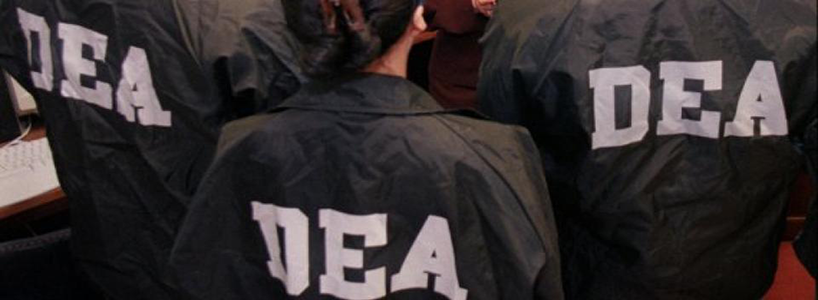Predicting Behavior
Over at the Newsweek blog, Declassified, Mark Hosenball explored the recent events at Fort Hood and the role the security-clearance procedures played or didn’t play.
According to Wayne Hall, a spokesman at Army HQ at the Pentagon, everyone who receives a commission as a U.S. Army officer has to undergo a security investigation, which qualifies him or her, at a minimum, to handle information classified secret…he said standard practice is that officers normally have to receive their secret clearance before they are formally commissioned, and that sometimes commissions are held up pending the successful conclusion of the security check. At this point there is no reason to believe that Hasan had anything higher than the standard secret clearance required by all officers at his level.
The background investigation of the shooter will likely come under some scrutiny as the investigations proceed.



Comment Archive
I am no expert on security clearances, but I think this problem goes far deeper than the person who conducted his background. I have no doubt that this physician could pass a standard security clearance. I didn’t know him and I really don’t know much about his word/actions, except what the press is reporting. However, if what is coming out is true, he was clearly creating a hostile work environment and in most government type agencies, disciplinary action could have been documented and taken (such as counseling, reassignment with less patient contact, an order to undergo psychiatric evaluation or termination). Physicians are held to higher standards than patients, by their regulating Boards, because they are in a position of trust and given tremendous power over the lives of others. The federal agencies need to work harder to recruit/retain the higher quality doctors our veterans deserve. Happy Veterans Day!
NewCIApplicant
Things were wrong on many fronts. This clown should have been, at a minimum, discharged. I hear media accounts saying how free speech played a part. As a 20 year Military Criminal Investigator, I will tell you that military members do not have Free Speech per se. We live by a Code of Conduct and an oath we all take. I cannot simply spout off whatever I may have wanted to. I have seen literally hundreds of people relieved of duty for things like being late for work, an accusation made against someone for sleeping on post….the list goes on-and-on for minor offenses that the Civilian Community would not recognize. The Feds may have screwed the pooch, but the main culprits here is the Terrorists and military commanders, who have jurisdiction over the Major.
BW you definitely have a lot of insight into the situation. I agree that he had to live by higher standards than civilians, based on both the oath he took to honor, protect and serve this country, and the Hippocratic Oath he took as a physician. I guess the other doctors he worked with were aware that he was a problem as well. Sounds like he suffered from “Pre-traumatic stress”. It would be interesting to see if his licensing board was handling any investigations into complaints about him. Federal facilities/military are the only places a doctor can work with an out of state license. He might have had a Texas license as well, but I’m sure that’s history. I look forward to changes that will result in better safety measures when the “warning signs” appear.
hello, i believe this question i have is most likely out of context for this thread. I was suppose to enter this on the ‘So you need a Security Clearance . . .’ article, however, the Leave a Reply option is no longer available, so here it goes.
i recently got my interim clearance and is on the process of investigation for this TS Clearance. i am an american born citizen. my dad is caucasion who was a retired air force, who now works for the civil service with a high clearance. my mom is a Philippine native who was naturalized about 30 years ago. my grandparents from my mother are both legal immigrants, who would like to stay that way. and my aunt is also a green card holder who lives with my parents.
i no longer live with my parents. i now reside in the Washington dc area, with my girlfriend who is a green card holder (permanent resident) and who has 4 more years to go to be eligible to apply as an American citizen. also, she had a DUI when she was 22, and right now she is 25. i have no problems with my records from the past. my girlfriend and i work for the same company as IT technicians, but on a different building and different project as mine is more secured. as a background of her family, both of her parents are Philippine natives. her parents are divorced. her dad was naturalized a few years ago, and now lives in California. her mom lives in the Philippines who’s visitors visa recently expired. her sister lives in north Carolina with her marine husband with 3 kids, but i am unsure of her status.
now, my question is, i have been thinking of marrying my girlfriend, but with her whole background or even my family background, would any of these instances cause any problems during the whole investigation for my TS Clearance? or in short, should i not marry her until she is an American citizen? or should i not marry her at all because of her whole family background and her DUI record that might conflict with my clearance?
i sincerely appreciate, any recommendations and advise that can be provided. Thank you very much.
blucigs:
Since your girlfriend is currently a cohabitant, it makes no difference for a security clearance if you marry her or not. For security clearance purposes cohabitants are regarded exactly the same as spouses. I hope you listed your girlfriend as a cohabitant on your clearance application form.
I generally don’t give advice about things that aren’t related to security clearances, but in this case I offer the following: The decision to marry is far more important than any career considerations or security clearances. If you have any reservations about getting married, you probably shouldn’t do it. If you are certain you want to marry, you shouldn’t let any potential security clearance problems deter you.
William I appreciate your response.
from what i remember, I don’t think I mentioned her name anywhere on the form because it didn’t ask anything about if I lived with anyone or who the name of my other half.
my girlfriend and i have been talking about this, and if marrying her will have a conflict on my clearance we both agreed that we’ll definitely hold off until she gets her citizenship.
so meaning, since you mentioned that it makes no difference for a security clearance if I marry her or not as for security clearance purposes cohabitants are regarded exactly the same as spouses. during the whole investigation, they will be checking her as well, right? and from her background, this would definite affect the results?
your response is highly appreciated.
blucigs:
Look at question 17C (Cohabitant) on your printed copy of your SF86 (eQIP). If you did not list your girlfriend there, you should have. If you listed her, a National Agency Check (NAC) will be conducted on her. If not, you should volunteer information about her during your Personal Subject Interview (PRSI) and explain why you failed to list her on the form. Be prepared to answer questions about her immediate family members. Look at questions 18 and 19 on the SF86 for some of the information the investigator will want. The NAC on your cohabitant will then be conducted. Read my article on “Foreign Influence and Security Clearances” at https://news.clearancejobs.com/2010/09/05/foreign-influence-and-security-clearances/ for information about the relevance of having non-US citizen relatives, cohabitants and associates.